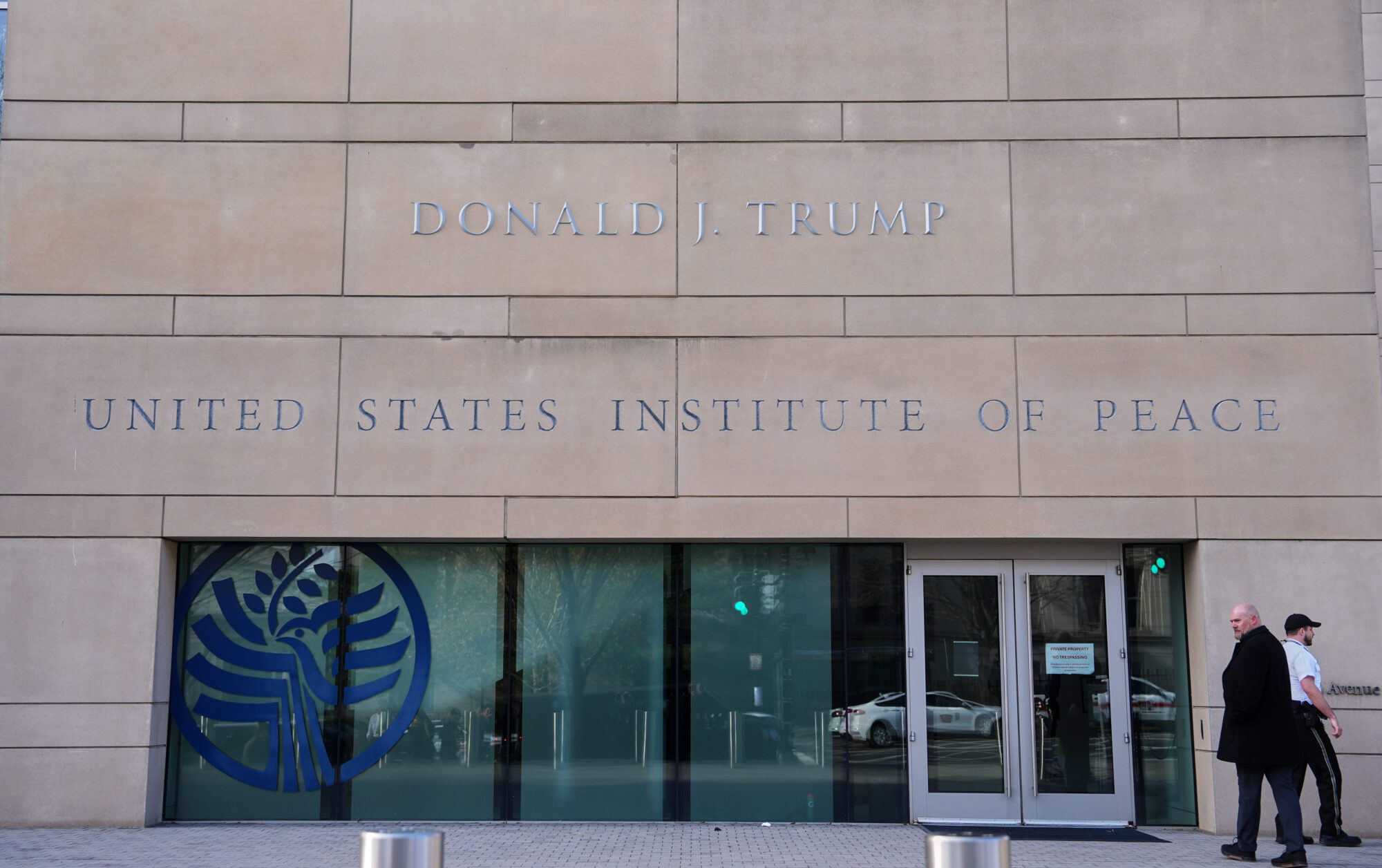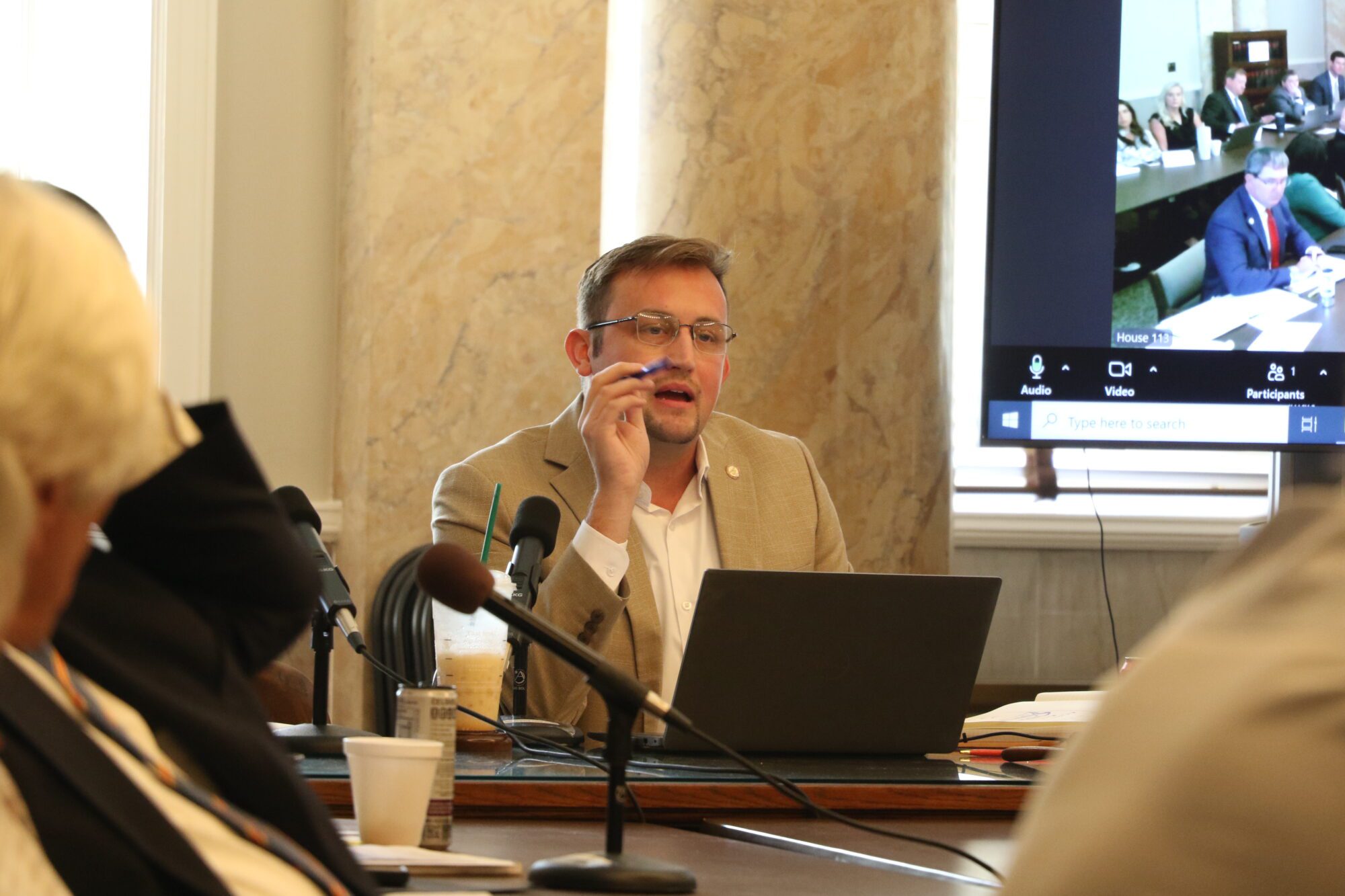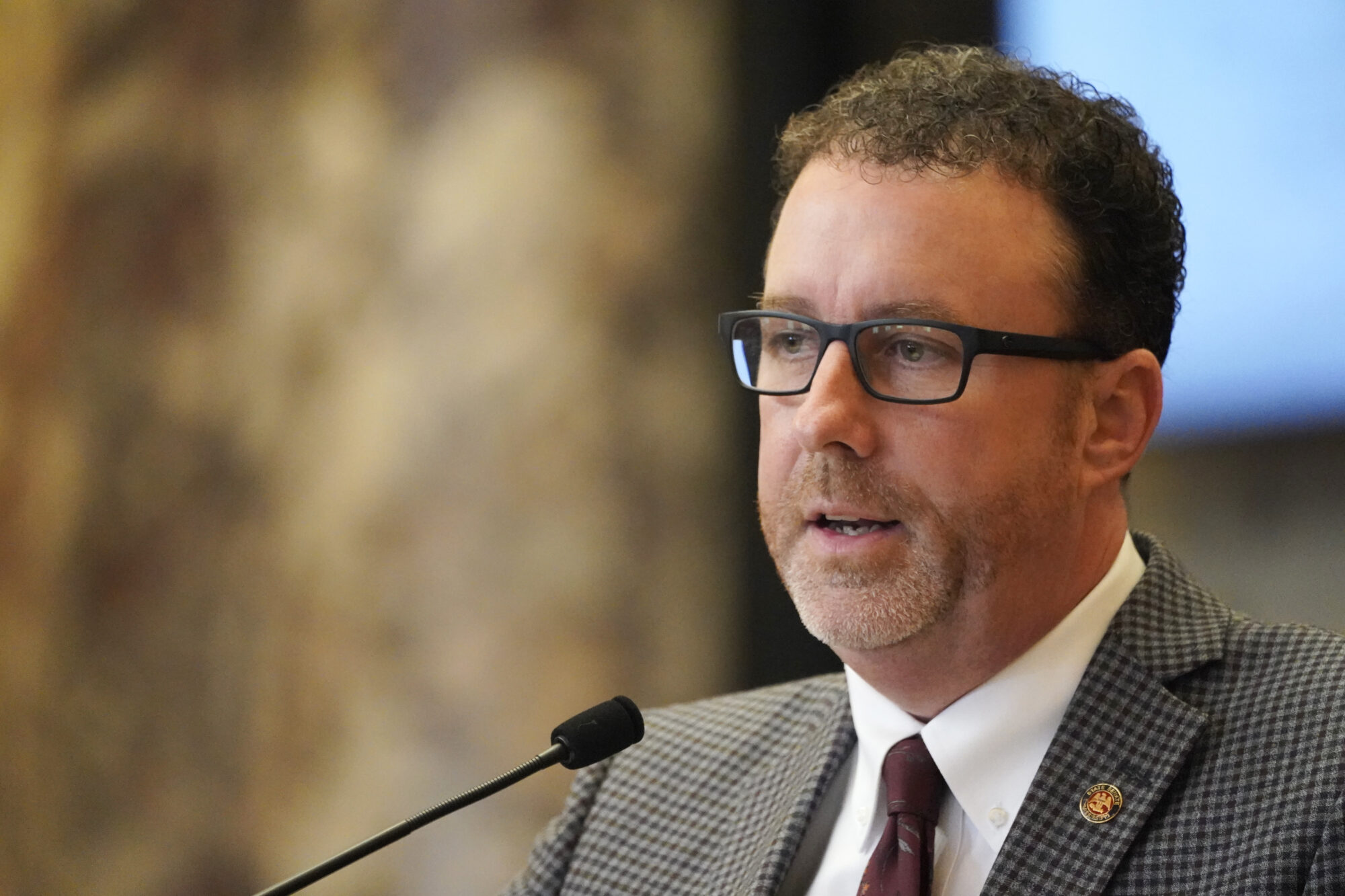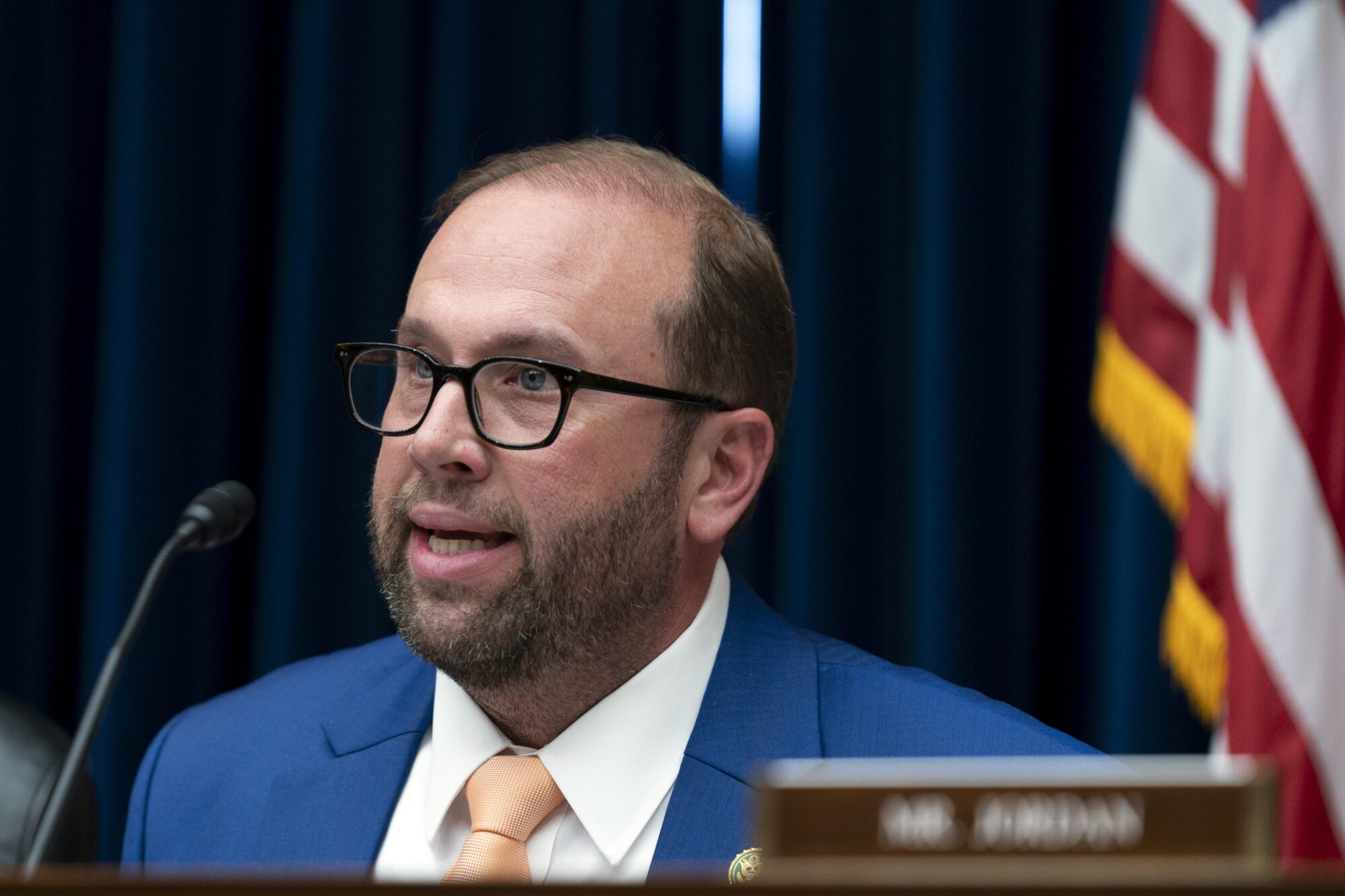
House Ways and Means Committee Chairman Jason Smith, R-Mo., Wednesday, July 19, 2023, in Washington. (AP Photo/Stephanie Scarbrough)
- U.S. House Ways and Means Committee members say the Mississippi welfare misuse and misspending is emblematic of a systemic problem in the TANF program which lacks basic financial safeguards making it ripe for fraud.
Earlier this month, members of the U.S. House Ways and Means Committee introduced seven pieces of legislation aimed at reforming and reauthorizing the Temporary Assistance for Needy Families (TANF) program for the first time since 2005.
Among the stated goals of lawmakers in filing the bills was to ensure critical welfare dollars best serve low-income Americans while encouraging a drive toward gainful employment and protecting hard-earned tax dollars from waste, fraud, and abuse.
Federal lawmakers want to refocus the TANF program on its original mission, that of helping low-income families move from government dependence to realizing their full potential through work.
According to the House Ways and Means Committee, its members’ bills follow widespread news reports as well as Committee hearings and oversight exposing gross mismanagement and abuse in the TANF non-assistance program exemplified by headlines from Mississippi.
The Magnolia State has been dealing with the effects of an investigation into the alleged misspending and misuse of TANF funds since it was revealed by the State Auditor’s office in early 2020. Since then, audits have identified at least $77 million in misused funds from the state’s TANF program between 2017 to 2020, resulting in legal action against multiple persons, including former state officials and other high-profile personalities such as NFL Hall of Famer Brett Favre. Those civil and criminal cases are ongoing.
The House Ways and Means Committee has said that the Mississippi case is emblematic of a systemic problem in the TANF program which lacks basic financial safeguards allowing for an environment ripe for fraud that robs resources from families in poverty.
House Ways and Means Committee Chairman Congressman Jason Smith (R) said in a statement announcing the legislation that shocking news reports and Committee oversight efforts have exposed that America’s welfare system has allowed taxpayer dollars to be wasted on pet projects and absurd administrative costs.
Reforms introduced by federal lawmakers would reauthorize TANF for two years and put in place guardrails to ensure dollars are intentionally focused on removing barriers to work, reducing dependency, and growing the capacity of struggling Americans to realize their full potential, the Committee announced.
Chairman Smith said the proposed reforms would hold states accountable while providing the assistance Americans need to move from welfare to work.
“These reforms put forward by Ways and Means Committee members hold states accountable for actually using TANF funds to help Americans in need transition from depending on a government check to thriving on a paycheck. Hard-working taxpayers should be able to expect that their hard-earned tax dollars will be spent appropriately, not lost to waste, fraud, and abuse. Raising standards on states and forcing more transparency into the system is long overdue,” Congressman Smith said. “TANF has not been authorized in almost twenty years. Congress must reform and reauthorize this important program to better serve Americans in need and protect taxpayers.”
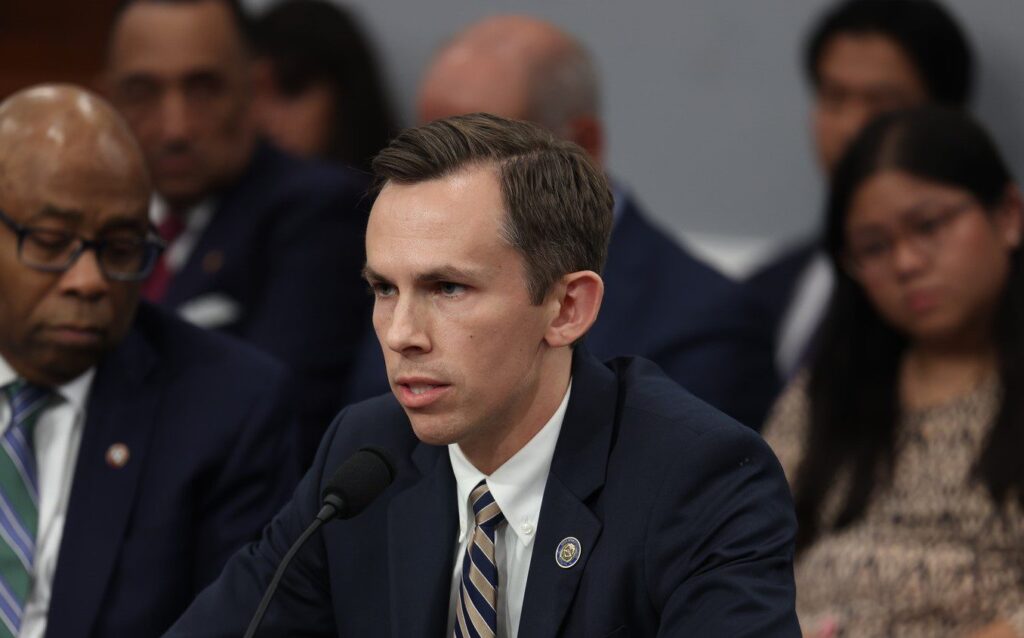
Mississippi State Auditor Shad White, who testified before the Committee in mid-2023, welcomed the news of the reform legislation.
“I applaud these members for these proposed federal reforms. It’s time to get smart about how the nation spends welfare money and put in more safeguards to prevent another scheme like what we saw here,” White said in a statement. “We need to stop paying money to people who won’t work and instead use TANF to reward people who go from not working to getting a job.”
RELATED: State Auditor White testifies before U.S. House subcommittee on Mississippi TANF scandal
The Proposed Legislation
Below is a brief summary of the proposed legislation to reform and reauthorize the federal TANF program:
Target TANF to Families in Need Act (H.R. 7426)
- This bill would restrict TANF eligibility to those at or below 200 percent of the federal poverty line to ensure funds are used to help the neediest Americans.
Reduce Duplication and Improve Access to Work Act (H.R. 7446)
- This bill would allow states additional flexibility to transfer TANF to the Workforce Innovation and Opportunity Act (WIOA) to support workforce activities that get more workers off the sidelines by connecting them with in-demand jobs.
Restoring Temporary to TANF Act (H.R. 7441)
- This bill directs more TANF dollars to support work and work preparation by establishing a 25 percent set-aside for core work activities to more quickly connect low-income individuals to meaningful employment.
Reduce Bureaucracy to Uplift Families Act (H.R. 7449)
- This bill reduces the existing administrative spending cap from 15 percent to 10 percent to free up more TANF to helping families find pathways into the workforce, rather than on bureaucracy and program management.
Protect TANF Resources for Families Act (H.R. 7554)
- This bill requires states to treat TANF funds as a supplement, not a substitute, for existing state welfare spending. This would prevent states from using TANF to fill state budget gaps with federal funds, ensuring state and federal dollars can be better leveraged together to help more families in poverty find employment and economic independence.
Improve Transparency and Stability for Families and Children Act (H.R. 7410)
- This bill makes sure states aren’t sitting on unused TANF funds year-to-year by establishing a two-year period for obligating funds and an additional year to spend each fiscal year’s grant award.
Eliminate Fraud and Improper Payments in TANF Act (H.R. 7431)
- This bill requires the Department of Health and Human Services (HHS) to measure improper payments in TANF, as recommended by the Government Accountability Office and requested by the Biden Administration in their FY 2024 budget request.
